QuestionI read your informative article on Angelfish, but I didn't see any "Q&A's"
pertaining to my particular problem.
I'll give you this info before I ask my question:
My tank is a 75 gallon, heavily planted aquarium, which is aided by CO2 injection.
I religiously maintain my tank's water perimeters by performing a 35% water
change every 5-6 weeks and keeping in-check all of the water readings; ph, nitrate,
nitrite, phos., etc.
The fish I have in my tank are all healthy, active and beautiful.
My water is always crystal clear.
I maintain my filters; cleaning them and replacing the filter media when necessary.
The water temperature is 82-84 degress, constant.
PROBLEM:
My male Angelfish's mate passed away about a month ago, after she suffered a kidney failure due to "Egg-Bloat". This pair used to spawn, on average twice a month. This
male has been in my tank for nearly 7 years. He (I call him Eddy) is a full-size adult and is happy, alert, active and as healthy-as-a-horse. He is really a beautiful Scalare Angel!
While trying to find a female companion for Eddy, I've lost six (6) Angelfish so far and
it looks like it may be seven Angelfish, soon, that have come-down with this illness.
I always make sure that the water perimeters are as close as possible as the
tank from which the purchased Angelfish were in; temp.,ph, etc). All of the Angels
were purchased from a tropical fish store that has one of the greatest reputations
in our area; they have been in business at the same location for nearly 37 years. I
know the owner quite well and all of his stock Angelfish are very healthy. All of
his Angels are grown and harvested right here in South Florida.
This is what happens when I introduce a (new) Angfelfish to my tank:
Each Angel is introduced slowly and gradually by letting the fish swim out of
the container on his own, when placed in the tank, near the surface. After only
about 8-10 hours, the Angelfish starts to behave abnormally by staying near the water's
surface, usually in a corner. The next day, it will start to swim in a somewhat
jerky motion forward after moving slowly backwards. The Angel will not eat nor
will it mingle with the other fish; it just keeps to itself. It's fins are closed and it
sometimes looks like is has a balance problem. After a day or so, the fish's body
seems to lack it's original silver & black appearance by becoming somewhat a
lighter (whitess) on the scales. This color appeareance does not hold true for some
of the other Angelfish who came down with this strange illness, as irratic swimming
and no eating where usually the two major synptoms.
QUESTION:
Why are all of the Angelfish (only) that are introduced to my tank getting sick?
Could this be that "Angelfish Virus"?
If this is a Virus of some sort, why doesn't my male Angelfish, Eddy, show signs or
symptoms of this illness?
Why aren't the other fish in my tank (Clown Loaches, small red Cichlids) show
symptoms of any illness. All the other fish are vivid and healthy!
Do you know what the PROBLEM is?
I will adhere to any of your suggestions in trying to solve this PROBLEM.
Regards and thanks for taking the time to read my letter.
Dave M. s2dave37@bellsouth.net
AnswerHi Dave,
Are you absolutely sure that Eddy isn't attacking the new angels?
Would it be possible to confine Eddy to one part of the tank, or less good, confine the new angel to a breeder basket or something like that to see if it gets the same symptons while there is no possibility of attack? If you could do either of those, then you would know if it is something in your water or not.
By the way, changing 35% once every 5 to 6 weeks is really on the low side. I generally recommend 20% once a week, every week to keep fish happy and healthy.
As a final option, consider getting at 10 gallon extra tank, set it up and put a new angelfish in it and see what happens. That might help eliminate some of the possible variables to solve this mystery.
-- Ron
rcoleman@cichlidresearch.com
Cichlid Research Home Page <http://cichlidresearch.com>

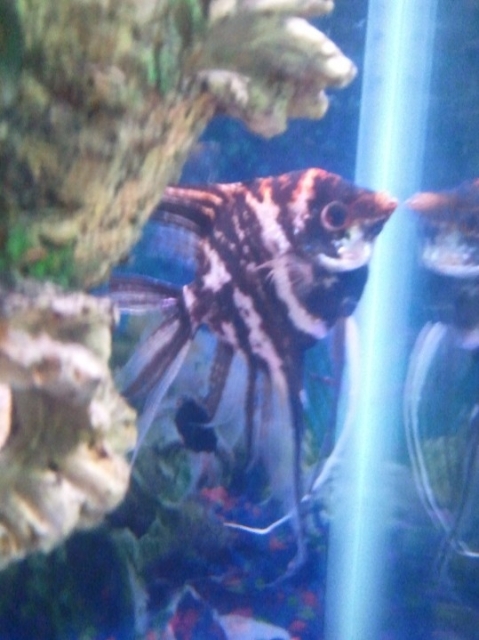 My Sick Angel??
QuestionMy Angel
QUESTION: OK. So I have a 50 ga
My Sick Angel??
QuestionMy Angel
QUESTION: OK. So I have a 50 ga
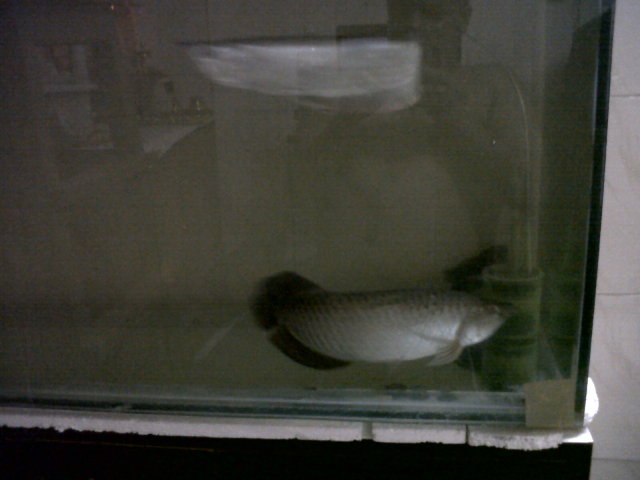 Keeping 11
QuestionQUESTION: As i have mentioned above i have two
Keeping 11
QuestionQUESTION: As i have mentioned above i have two
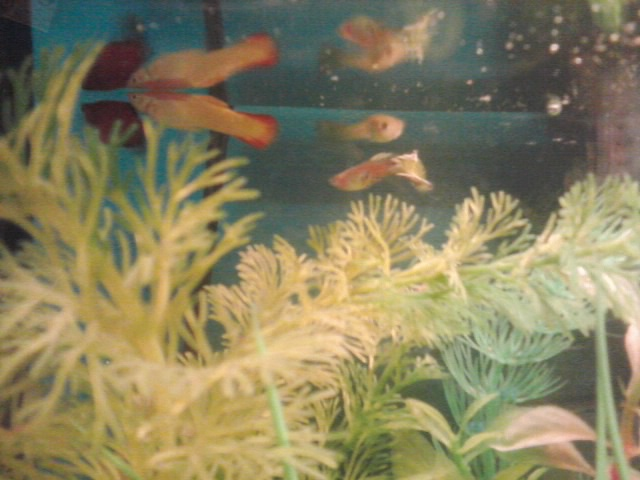 Not sure what to do
QuestionQUESTION: Hi, I have 2 platies a male and a fem
Not sure what to do
QuestionQUESTION: Hi, I have 2 platies a male and a fem
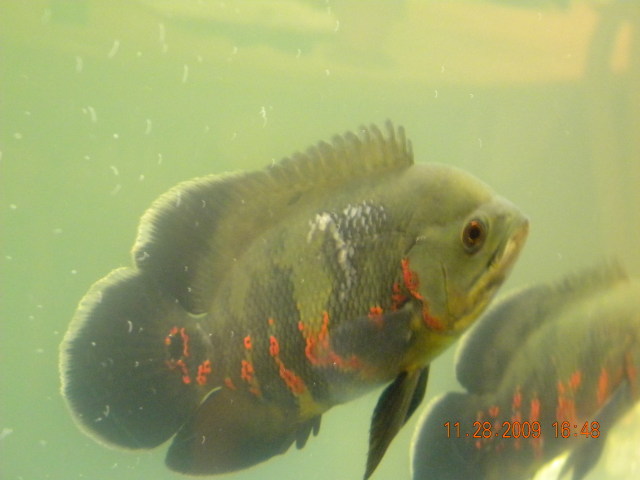 Oscar patchy white scales and cloudy tank
Question
Oscar and cloudy tank
I have two oscars about
Oscar patchy white scales and cloudy tank
Question
Oscar and cloudy tank
I have two oscars about
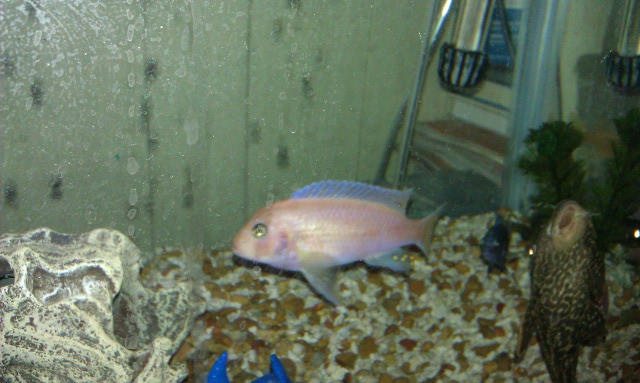 I need help identifying my new fish
Question
Pink Convict
Hello, Ive just recently p
I need help identifying my new fish
Question
Pink Convict
Hello, Ive just recently p